Boyd Elementary School serves 309 students in grades 2-3.
The percentage of students achieving proficiency in math was 90-94% (which was higher than the Colorado state average of 82%). The percentage of students achieving proficiency in reading/language arts was 90-94% (which was higher than the Colorado state average of 89%).
The student:teacher ratio of 13:1 was lower than the Colorado state level of 15:1.
Minority enrollment was 71% of the student body (majority Hispanic), which was higher than the Colorado state average of 50% (majority Hispanic).
School Overview
Grades Offered
Grades 2-3
Total Students
309 students
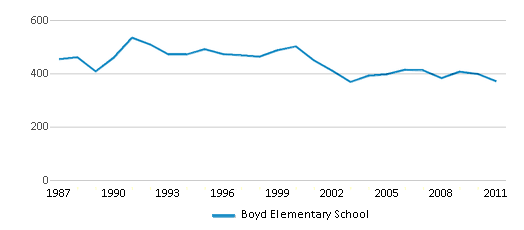
Total Classroom Teachers
23 teachers
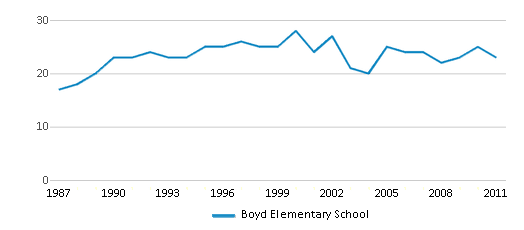
Students by Grade
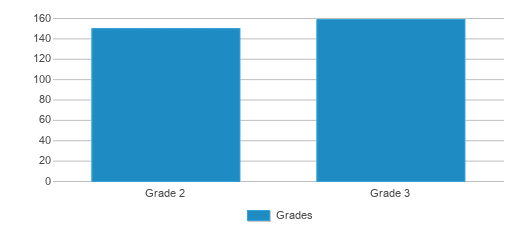
School Rankings
Math Test Scores (% Proficient)
(10-11)90-94%
82%
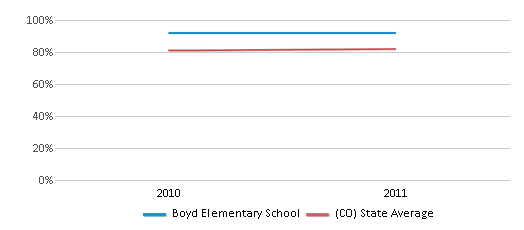
Reading/Language Arts Test Scores (% Proficient)
(10-11)90-94%
89%
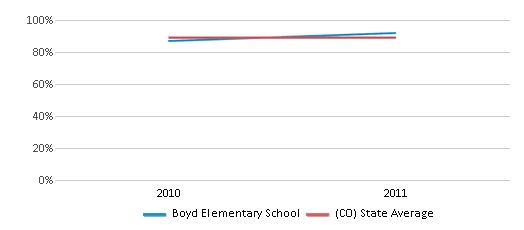
Student : Teacher Ratio
13:1
15:1
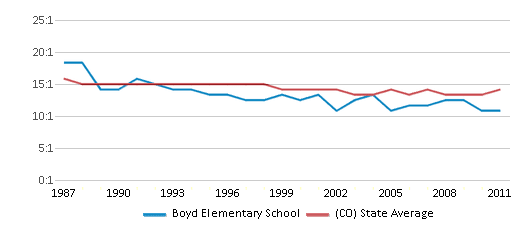
American Indian
n/a
1%
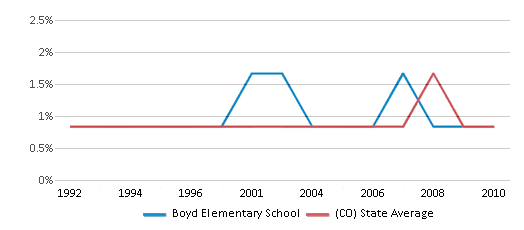
Asian
1%
3%
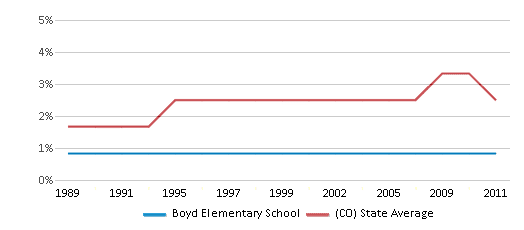
Hispanic
69%
36%
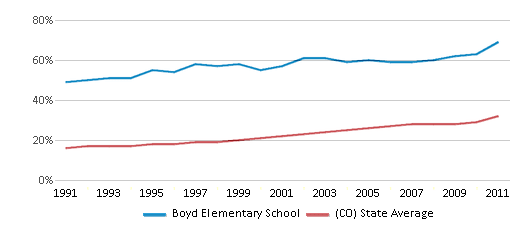
Black
1%
5%
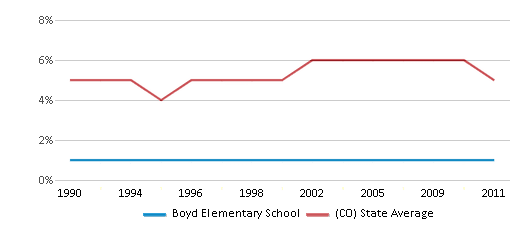
White
29%
50%
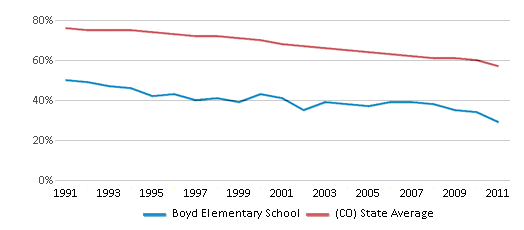
Hawaiian
n/a
n/a
Two or more races
n/a
5%
All Ethnic Groups
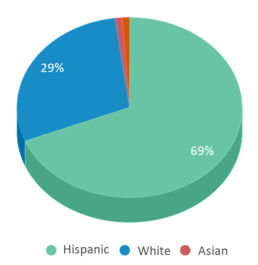
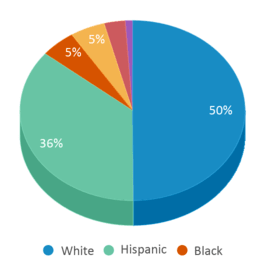
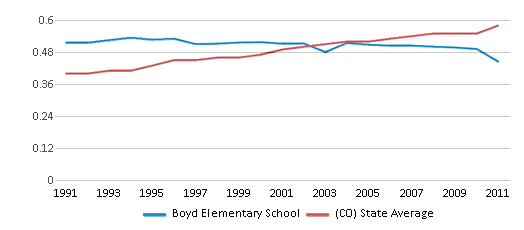
Eligible for Free Lunch
61%
39%
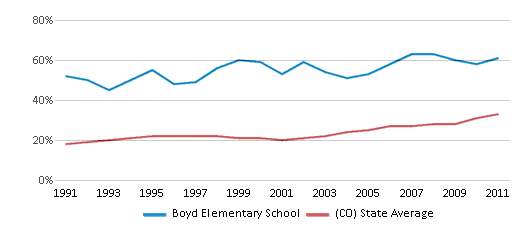
Eligible for Reduced Lunch
14%
6%
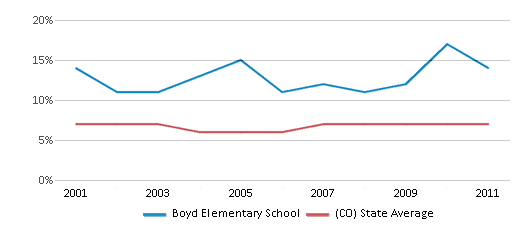
School Statewide Testing
School District Name
Source: National Center for Education Statistics (NCES), CO Dept. of Education
Frequently Asked Questions
What percent of students have achieved state testing proficiency in math and reading?
90-94% of students have achieved math proficiency (compared to the 82% CO state average), while 90-94% of students have achieved reading proficiency (compared to the 89% CO state average).
How many students attend Boyd Elementary School?
309 students attend Boyd Elementary School.
What is the racial composition of the student body?
69% of Boyd Elementary School students are Hispanic, 29% of students are White, 1% of students are Asian, and 1% of students are Black.
What is the student:teacher ratio of Boyd Elementary School?
Boyd Elementary School has a student ration of 13:1, which is lower than the Colorado state average of 15:1.
What grades does Boyd Elementary School offer ?
Boyd Elementary School offers enrollment in grades 2-3
What school district is Boyd Elementary School part of?
Boyd Elementary School is part of Alamosa School District No. Re-11j.
Recent Articles

What Is A Charter School?
Explore the world of charter schools in this comprehensive guide. Learn about their history, how they operate, and the pros and cons of this educational innovation. Discover key facts about charter schools, including admission policies, demographics, and funding, as well as what to look for when considering a charter school for your child.

10 Reasons Why High School Sports Benefit Students
Discover the 10 compelling reasons why high school sports are beneficial for students. This comprehensive article explores how athletics enhance academic performance, foster personal growth, and develop crucial life skills. From improved fitness and time management to leadership development and community representation, learn why participating in high school sports can be a game-changer for students' overall success and well-being.

February 05, 2025
Understanding the U.S. Department of Education: Structure, Impact, and EvolutionWe explore how the Department of Education shapes American education, from its cabinet-level leadership to its impact on millions of students, written for general audiences seeking clarity on this vital institution.





